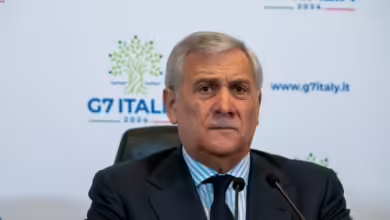In the Middle East, India Is A Major Player, According To A US Magazine
One of the most intriguing geopolitical changes in the Middle East in recent years, according to an article in the renowned US magazine Foreign Policy that focuses on international events, is the rise of India as a “major player” in the area.
The article asserted that New Delhi’s evolving position reflects the changing global order and these countries’ willingness—possibly even eagerness—to benefit from the new multipolarity by highlighting New Delhi’s close and expanding ties with significant regional nations like Israel, Saudi Arabia, and the UAE.

According to its author Steven A. Cook, the United States has little control over this evolution and could even, paradoxically, stand to gain from it.
“It is preferable if New Delhi is one of the options available to the Middle Eastern allies of the United States if they are searching for an alternative to Washington.
“The US may no longer be the undisputed big dog in the region, but neither Russia nor China can assume that role as long as India increases its presence in the Middle East,” he said.
In order to explain why it had surprised him at the time that Indians did not desire to play a bigger role in the Middle East, the author reflected on his visit to India around ten years before.
However, he said that since his trip was 10 years ago, things have changed.
Cook wrote, “Washington is overlooking one of the most interesting geopolitical developments in the region in years: the emergence of India as a major player in the Middle East. While US officials and analysts are obsessed with every diplomatic move Beijing makes and eye Chinese investment in the Middle East with suspicion.
According to the post, Saudi Arabia and the United Arab Emirates are actively looking for methods to strengthen their ties with India in the Gulf.
It notes that the swing to India originates in part from a shared goal in curbing Islamist terrorism but that a large portion of the draw is economic and that both nations, notably Saudi Arabia, have long been connected with Pakistan.
To illustrate its argument, it emphasised the expanding economic links between India and the two nations.
It said that India’s close connections with Israel are perhaps the most established of New Delhi’s relationships in the area.
Since Prime Minister Narendra Modi became the first Indian head of state to visit Israel in 2017 and his counterpart Benjamin Netanyahu reciprocated the privilege a year later, these connections have quickly evolved in a range of industries, particularly high tech and military.
Due to Israel’s limited market and (to many Indians) contentious politics, the Indian business sector has always shied away from making investments there, although Cook notes that this may be changing.
According to the statement, the Adani Group and an Israeli partner won a USD 1.2 billion bidding for the Haifa Port in 2022, and talks for an India-Israel Free Trade Agreement are still underway.
The connection between India and Israel is difficult, of course. India continues to back the Palestinians unwaveringly, maintains cordial relations with Iran, from whom New Delhi has bought substantial quantities of oil, and Indian elites often see Israel through the lens of their own colonial past, according to the report.
According to all accounts, Modi’s recent two-day trip to Egypt was a chapter in the ongoing romance between Egypt and India. It came about six months after Egyptian President Abdel Fattah al-Sisi attended India’s 74th Republic Day celebration, marking his third trip to New Delhi since taking office, as the guest of honour.
According to the report, Indians saw Egypt, like the Chinese, as a gateway via which to sell their commodities to Africa and Europe.
According to the author, it is tempting for US officials and analysts to see India’s expanding regional influence through the lens of great-power rivalry with China.
As the Biden administration turns from downplaying the region to seeing it as a place of potential to constrain China, it would be beneficial to have a second counterbalance to Beijing in the Middle East, the article stated.
“And Modi’s visit to Washington in late June was also a love fest, including a state dinner and address to a joint session of Congress,” the article said.
Despite all the goodwill between the US and India, Cook said that it appears doubtful that New Delhi would want to be the kind of ally that Washington envisions.
India disagrees significantly with the US and Israel on Iran when it comes to the Middle East, and Washington should be realistic about the implications of India’s growing economic and security links to the region, the piece added.
It said it was improbable that India would side with the US, but it was also implausible that New Delhi would undercut Washington as Beijing and Moscow had.
The report went on to say that it was time to take New Delhi’s attempts to project power in the area seriously.







